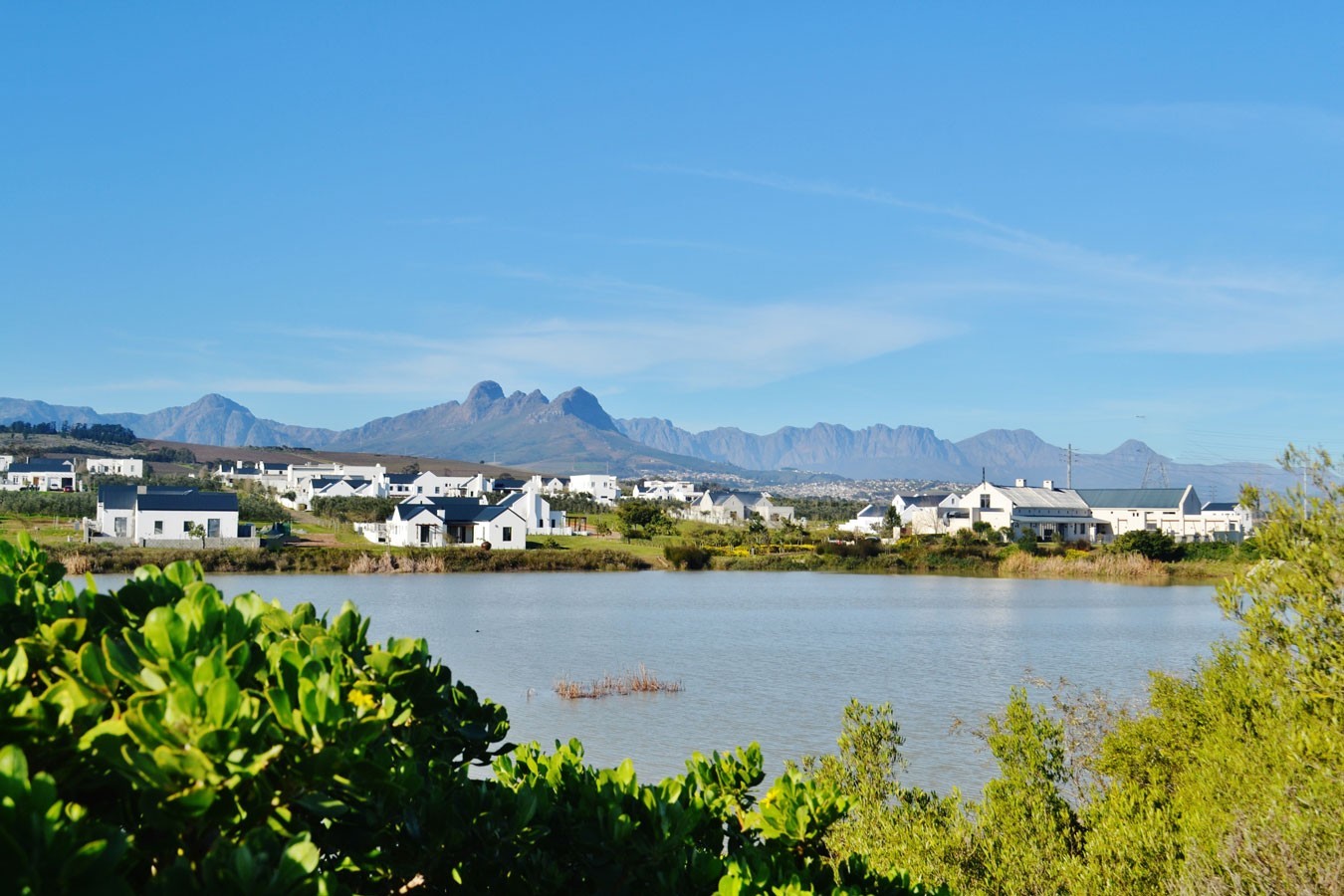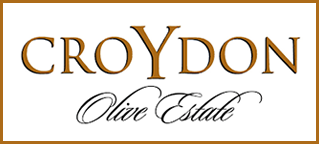Cape Dutch homesteads and typical 19th century Cape village homes with street-facing verandas, low garden walls, raised patios and tree-lined walkways,giving a idyllic old school village feel.
Resting amongst the magnificent Helderberg mountain ranges in Somerset West is the Croydon Olive Estate, a charming estate offering homeowners a rare opportunity to live on an operational olive farm without having to work on one.
Croydon Olive Estate is entirely independent from neighbouring Croydon Vineyard and was born out of a desire to create an estate that not only offered a secure family centred lifestyle, but was also financially sustainable in the long-term. Unlike other estates, which encompass extremely expensive golf courses, Croydon Olive Estate is unique in that it offers private open spaces with a measurable return on investment, reducing the financial burden on the Homeowners’ Association (HOA), yet still retaining a wonderfully enhanced standard of living.
Representing the warm Mediterranean, the olive is a graceful and timeless evergreen tree that is long living and works very well in the South African climate. Just over seven hectares of the 34-hectare Croydon Olive Estate is used for farming olives and each residential plot backs onto an olive orchard. Although very much in its infancy, it is anticipated that the sales of olives to local businesses and residents will be profitable in creating ongoing revenue for the estate. The developers have created a standalone company that will market the olives and bottles of olive oil produced and, once the estate has been completed in its entirety, will transfer ownership of this company to the homeowners. Up until then, the developer has undertaken responsibility to subsidise any operational shortfalls and ensure that the assets always exceed the liabilities. There is an in-house olive cellar and press, with ancillary facilities and farming equipment supplied by the developer, and a team of 10 permanent staff is employed to farm and landscape the olive groves, although this complement can exceed 50 during harvesting.
The HOA owns the olive company and onsite orchards and a board of trustees consisting of four members representing the interests of the homeowners and three representing those of the developer, together with the estate manager, handle the daily operations of the estate and communicate with residents via email, although the very latest Fibre to the Home system currently in the planning phase will allow for greater and more efficient connectivity.
The central location attracts a brilliantly balanced mix of residents – from young professionals taking advantage of the convenient, yet quaint locality right off the N2 and in easy reach of Cape Town International Airport and the City Bowl to retired couples wanting to take pleasure in the stunning landscapes of the nearby winelands. Domestic and foreign investors and young families are also drawn to the benefits of outstanding nearby schools, fantastic local amenities and
a safe and rural environment. Launched in 2008, the master plan allows for 205 plots, with just fewer than 20 currently available, varying in size between 650m² to 720m² and priced at R 880 000 and R 1.2 million respectively. Homeowners have the opportunity to purchase their land directly from the developer and, unlike the Vineyard Estate, Croydon Olive Estate permits the completion of double-storey homes, allowing for much bigger properties suitable for growing families. Completed homes on the estate retail between R 2.5 million and R 6.5 million depending on size and finish.
All of the completed freehold homes are occupied, the majority by permanent homeowners, with fewer than 20% leased out by investors who can anticipate a monthly rental income of approximately R 18 000 to R 25 000. Thirty-six homes are under construction and 18 new homeowners have just had their building plans approved by the Architectural & Aesthetic Review Committee, with construction permitted to begin up to five years after date of first transfer, and a further one year for final completion. The services of any number of external building contractors can be utilised by homeowners, provided that the contractors meet the estate’s accreditation process, overseen by a dedicated team.
Creating an architectural synergy that is congruent with the local region and embracing of tradition and culture is extremely important to the developers and two distinct styles prevail. Homes are painted in clean white exteriors with grey pitched roofs mirroring the Cape Vernacular style, whilst houses that are fashioned in Cape Georgian are reminiscent of homes in Dorp Street, Stellenbosch and historic areas like the Bo Kaap. Houses in the lanes remind one of Cape mission stations, Cape Dutch homesteads and typical 19th century Cape village homes with street-facing verandas, low garden walls, raised patios and tree-lined walkways, giving a idyllic old school village feel.
Homeowners are encouraged to incorporate indigenous plants such as fynbos in their garden so that the landscape retains its natural look, whilst the grounds are irrigated with stored rainwater and recycling facilities are also available to maintain the most sustainable and environmentally friendly living. Homeowners are also permitted to add solar panels to the outside of their homes. Residents are able to utilise a range of walking trails as well as the state of the art onsite gym and open-air swimming pool and will soon be able to fish under a catch and release system in the onsite dam. A number of social events organised by the HOA, including the annual harvest and regular Sunday lunches, brings the estate community together, whilst the outside entertainment and braai area is ideal for smaller private gatherings. A fully equipped function venue can seat 86 people and is available for external events such as weddings and corporate soirees and homeowners also receive a half-litre bottle of olive oil and 500 grams of olives from the estate orchards every month.
Security is paramount and the estate enjoys a dedicated 24-hour armed response team that includes a canine unit. The entire 2.14-kilometre perimeter fence is fully alarmed and electrified and each home is fitted with a house alarm. A biometric fingerprinting system is currently in operation in order to manage the large number of onsite external contractors and this will soon be extended to monitor the access of homeowners and visitors, creating a robust security operation.
Croydon Olive Estate is a pioneering estate that successfully marries aspects of the past, present and future. Offering residents the opportunity to experience authentic rural living, it exudes memories of old Cape Town whilst setting sound foundations for a rewarding, sustainable and self-sufficient future. This is most definably estate living of the future.





